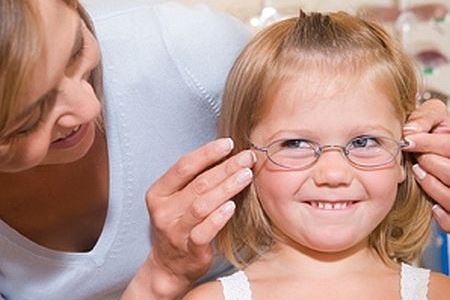Eye Health For Children

Children may not realise they have a vision problem, so without routine tests there is a risk that any problems could go undiagnosed for months or years.
It’s important for eye problems to be identified as early as possible, because they can have a significant impact on a child’s development and education. Eye problems are often much easier to treat if detected while a child’s vision is still developing (usually up to about seven or eight years of age). An early diagnosis will help to ensure that you and your child have access to any special support services you may need Problems can occur at any age, either before a child reaches school age or after a normal screening test at school.
Signs a child has a problem with their sight include:
- sitting too close to the TV or insisting on watching TV in the dark
- rubbing their eyes a lot
- holding objects very close to their face
- blinking a lot
- Complaining of headaches or eye strain
- Being unusually clumsy
- Problems with hand-eye coordination- for example they may struggle to play ball games
- problems moving around in the dark, such as when entering a tunnel or at the cinema showing signs of a squint – where the eyes don’t look in the same direction; one eye may turn inwards, outwards, upwards or downwards, while the other eye looks forward If you’re worried about your child’s sight or there’s a history of squint or lazy eye in the family, take your child to an ophthalmic practitioner or an optometrist.
In Coventry, children are offered a screening test to look for reduced vision in one or both eyes during their first year at school. It’s also recommended that children have regular eye tests at least once every two years. These tests can be done at a high street opticians and are free for all children under 16 years old (and those under 19 years old in full-time education). If the eye test detects any problems, your child will be referred to an orthoptist, who’s part of the eye care team and usually works alongside ophthalmologists and optometrists. Orthoptists work in local health clinics or hospital eye clinics.
Children don’t have to be able to read to have their eyes examined. It’s possible to tell whether a child has a squint or needs glasses without asking them any questions using age-appropriate tests and equipment.
These specialists can be found in high street opticians or community eye centres. They’ll see children of any age for an NHS sight test.
Even if your child doesn’t show any of the above signs, they could still have an underlying eye condition.

